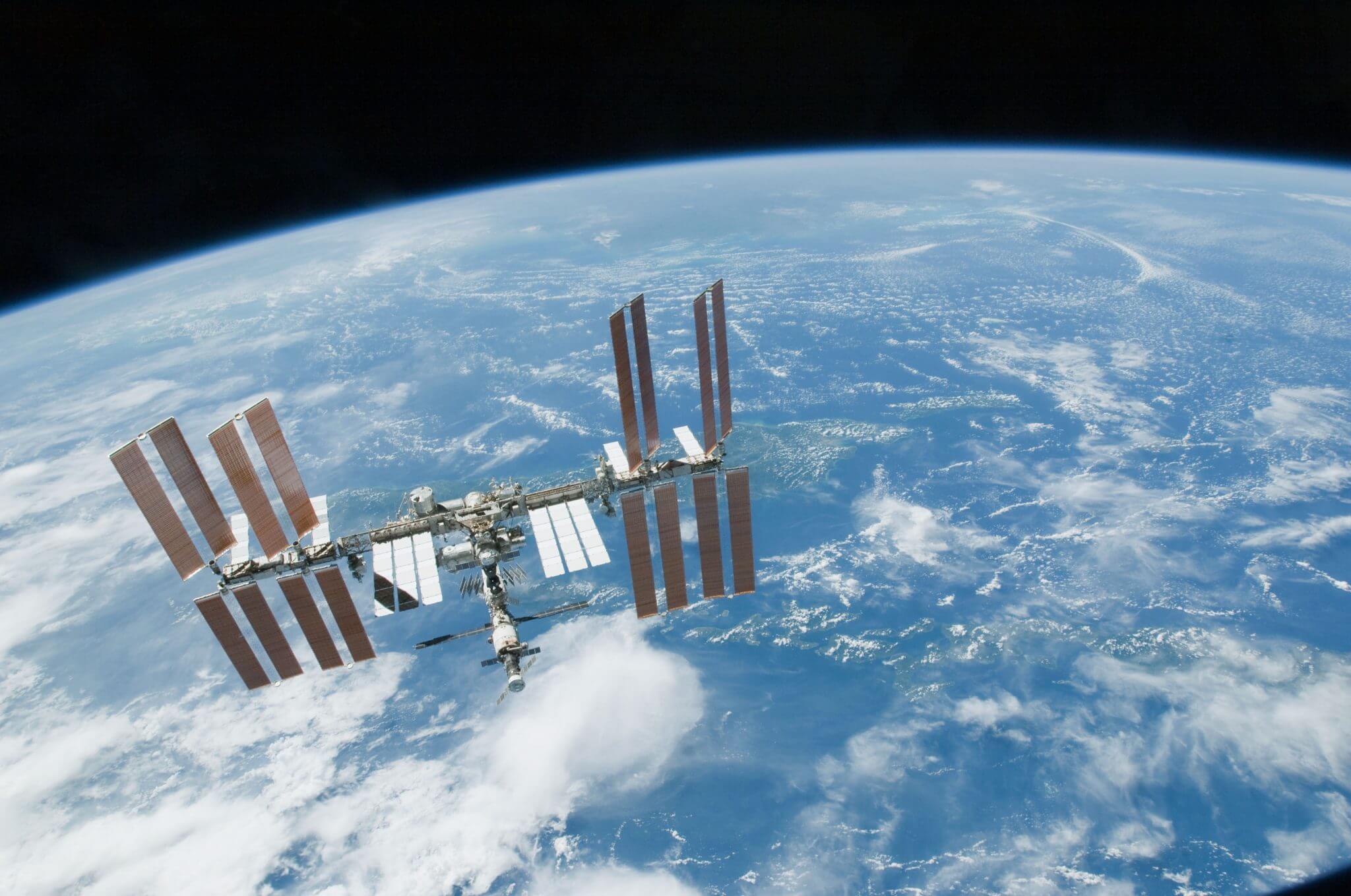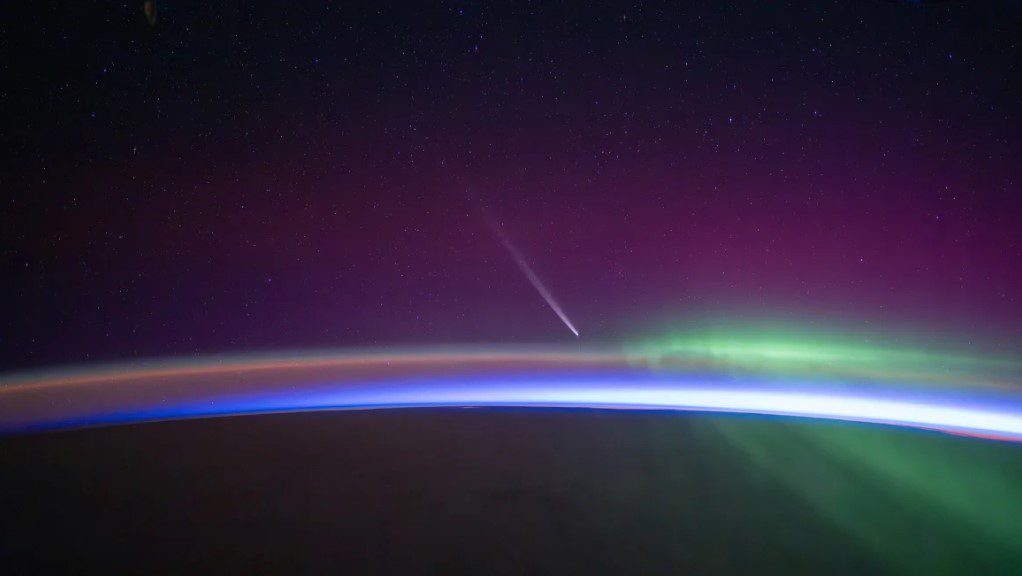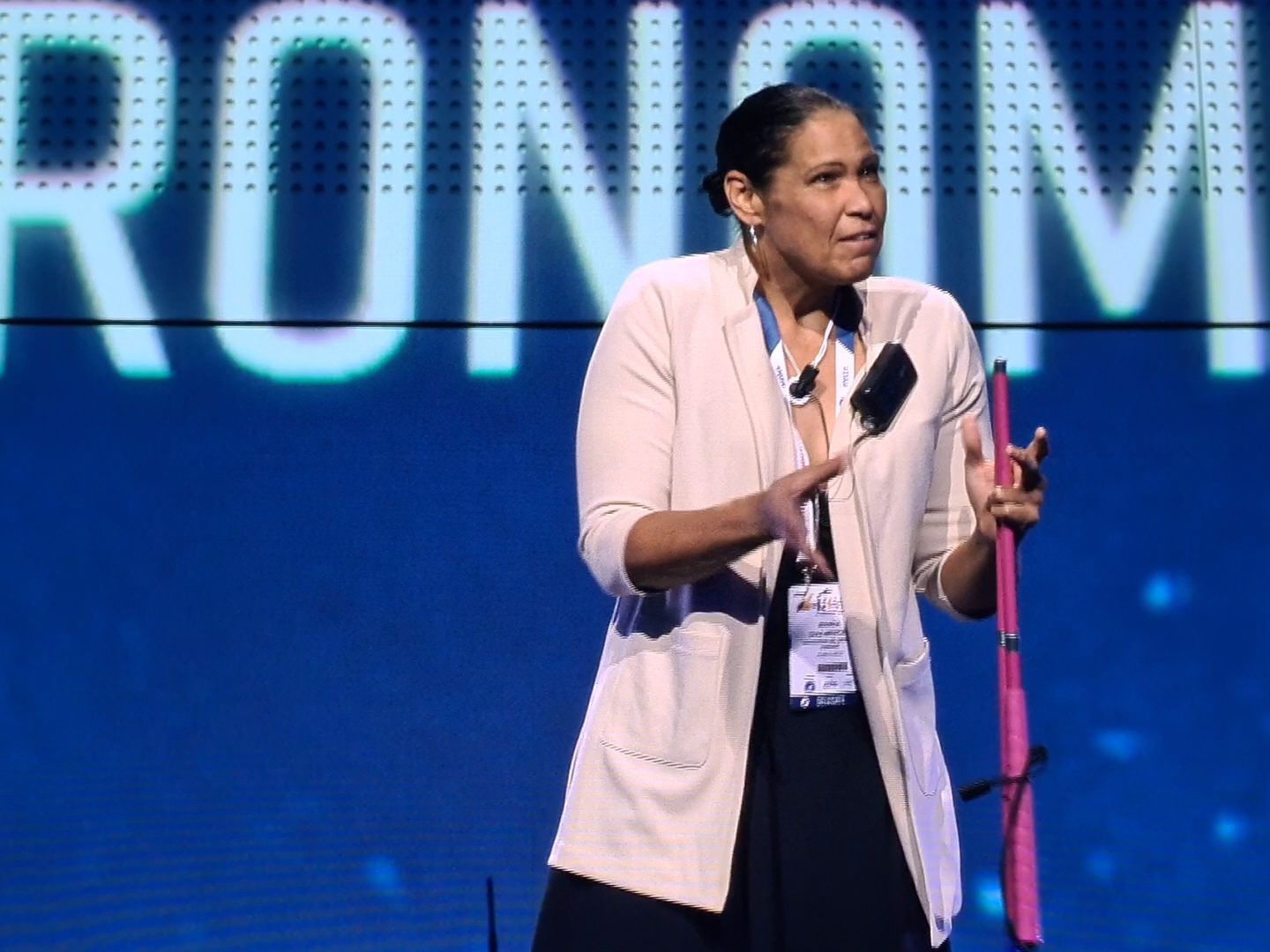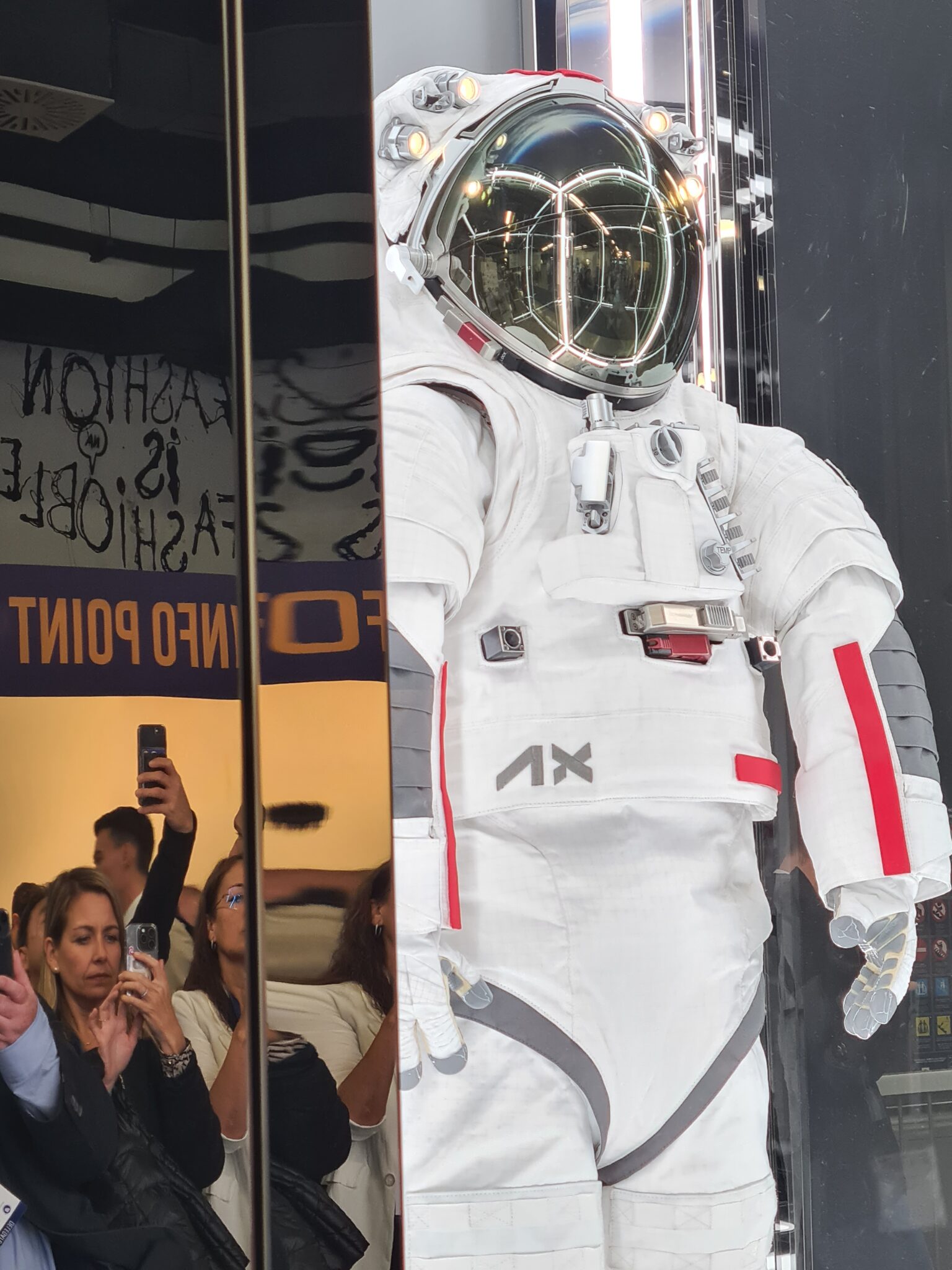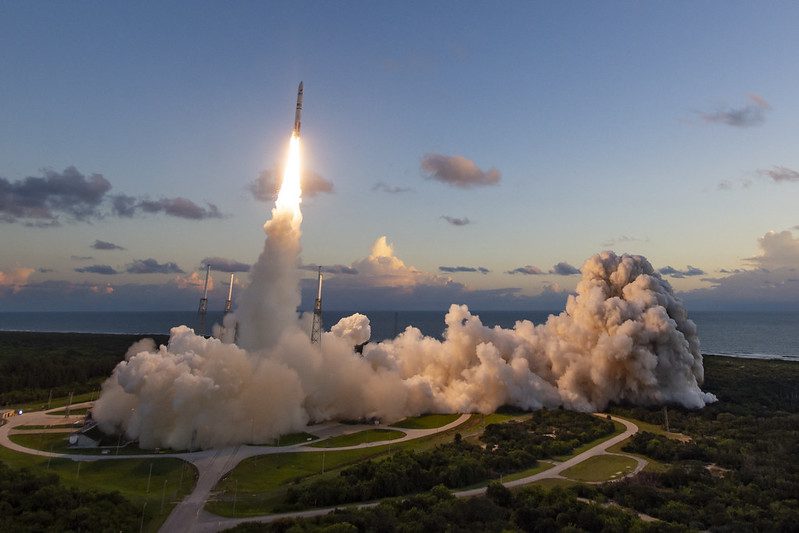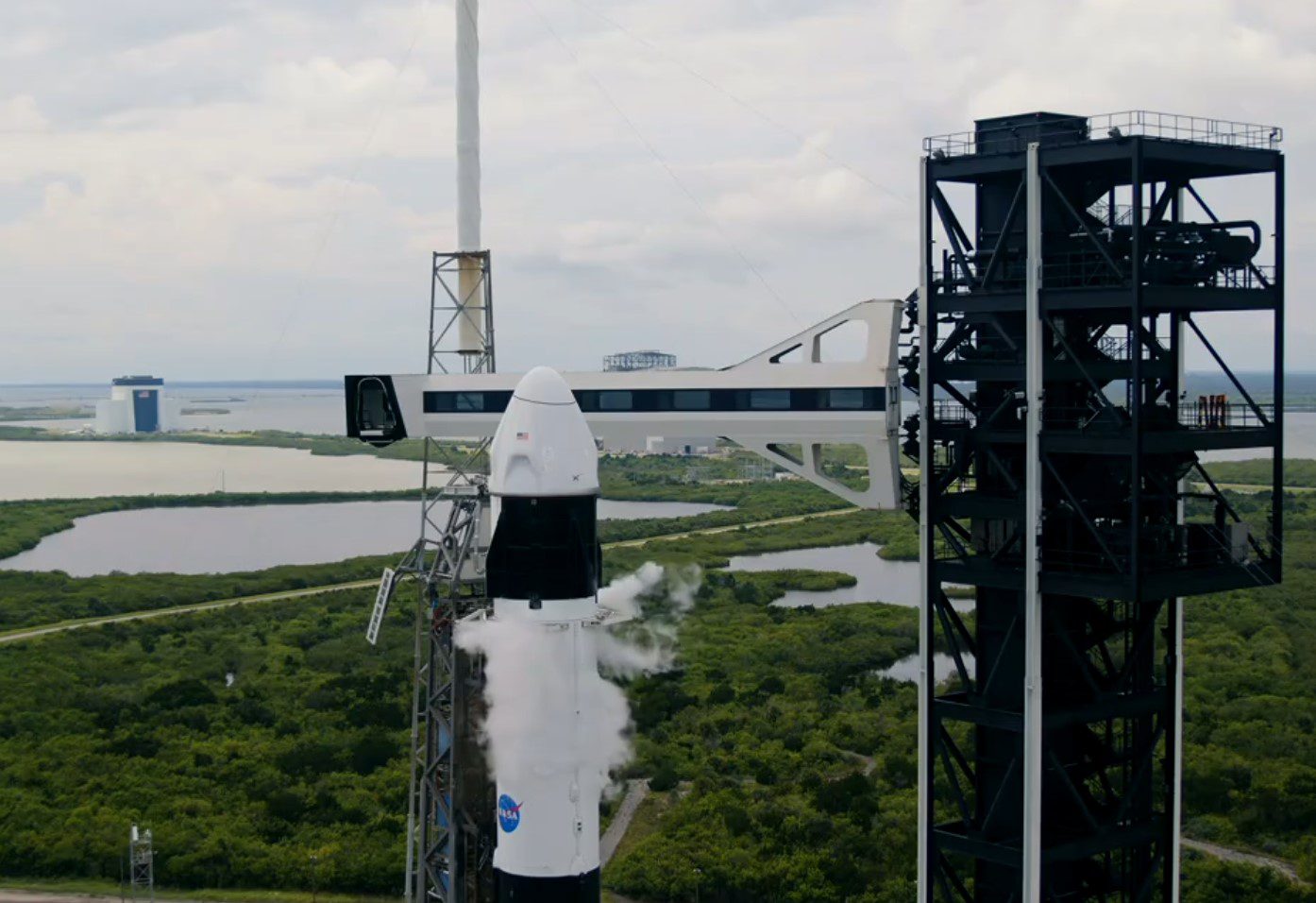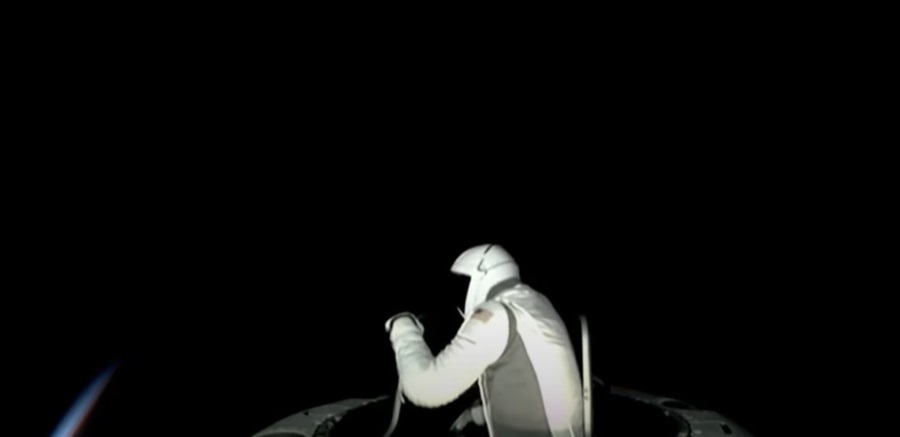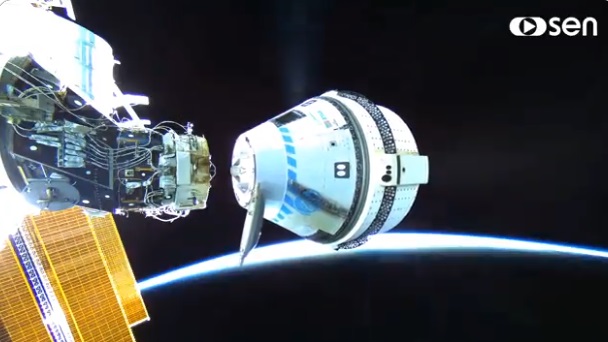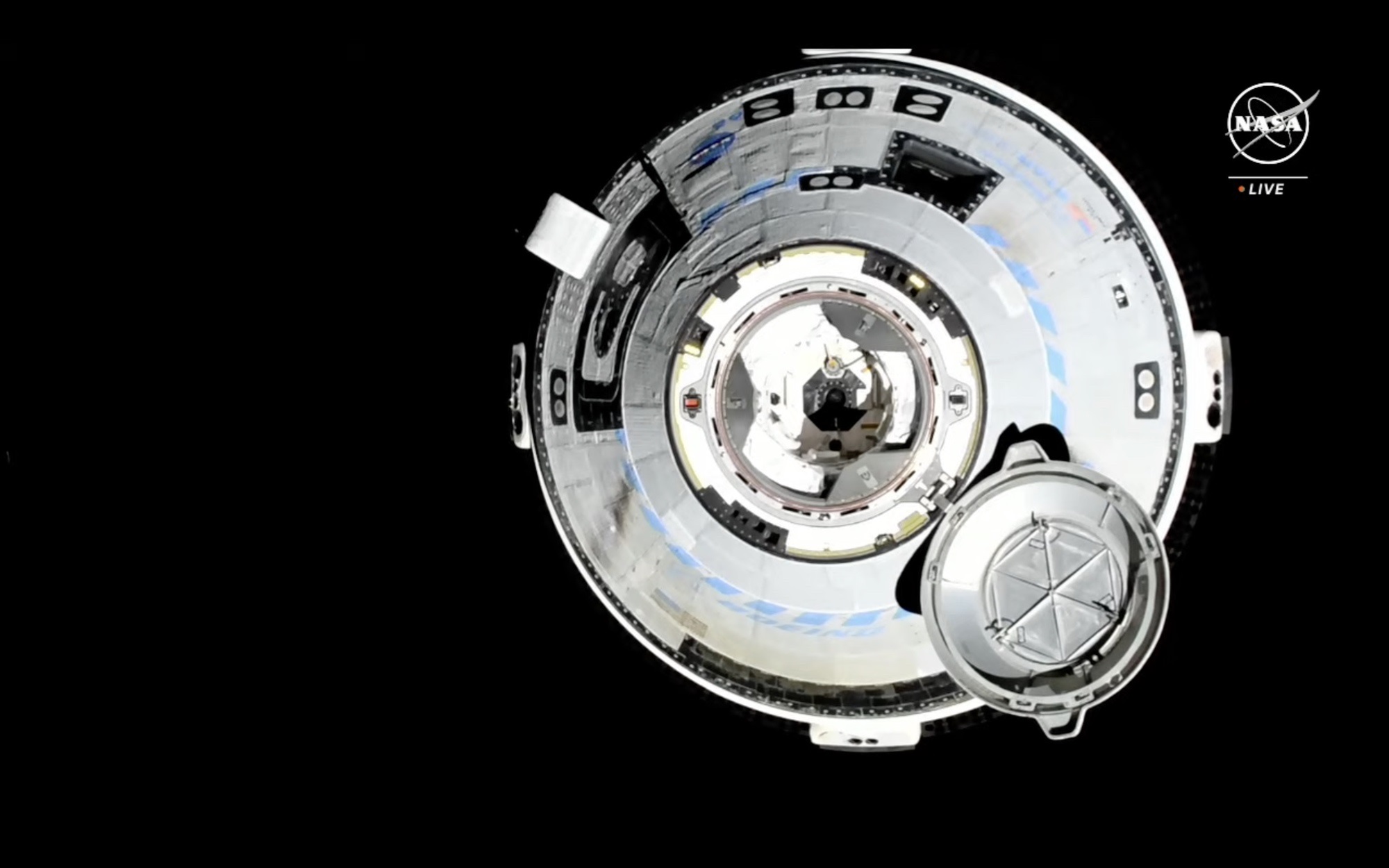Having been unberthed at 0500 GMT on on 7 Jan 2019, the Dragon CRS-19 cargo spacecraft was fully undocked from the International Space Station (ISS) when it was released from the Space Station Remote Manipulator System at 1005 GMT on the same day. During its departure firings one reportedly accidentally impinged on CYGNUS NG-12 solar array causing it to wobble.
DRAGON CRS-19 fired its thrusters to deorbit at 1451 GMT until 1504 GMT on 7 Jan and then jettisoned the trunk section at 1508 GMT and entering the atmosphere at 1524 GMT. DRAGON CRS-19 successfully splashed down in the Pacific Ocean at 1542 GMT near 31.2N, 121.0W .
Eight days later a further spacewalk – the second by an all woman team – was made by an all female team. The spacewalk – more formally known as an Extra Vehicular Activity (EVA) was conducted by Astronauts Christina Koch and Jessica Meir to fix in two replacement Lithium Ion batteries, replacing the former Nickel Hydrogen (NiH) ones, moving two new ones (Nos 21 and 22) from EP8 pallet to P6 Truss (fixed into Channel 4B). The airlock was depressurised at 1130 GMT on 15 January and repressurised at 1904 GMT on the same day.
The same pair of astronauts, Christina Koch and Jessica Meir, made a second EVA on 20 January 2020 to move two more of the old NiH batteries out, and putting a new Lithium Ion one (No 23) onto the P6 Truss. The depressurised time was from 1127 GMT to 1833 GMT.
Astronauts Andrew Morgan and Luca Parmitano did a space walk on 25 January 2020. Airlock depressurised from 1158 to 1820 GMT. The crew repaired cooling line on AMS-02 experiment and removed camera lense covers on CP8 and CP9.
All times from Jonathan McDowell

